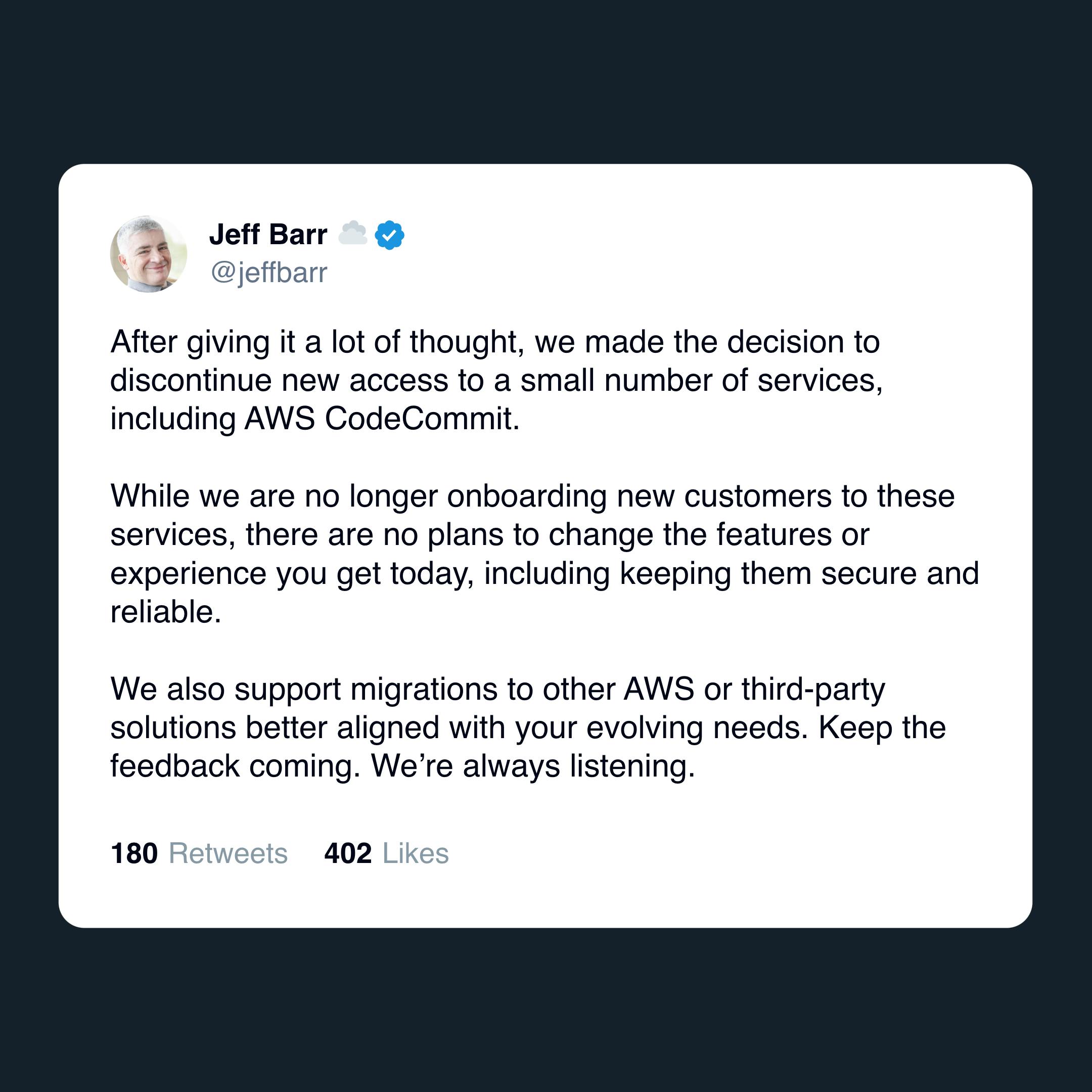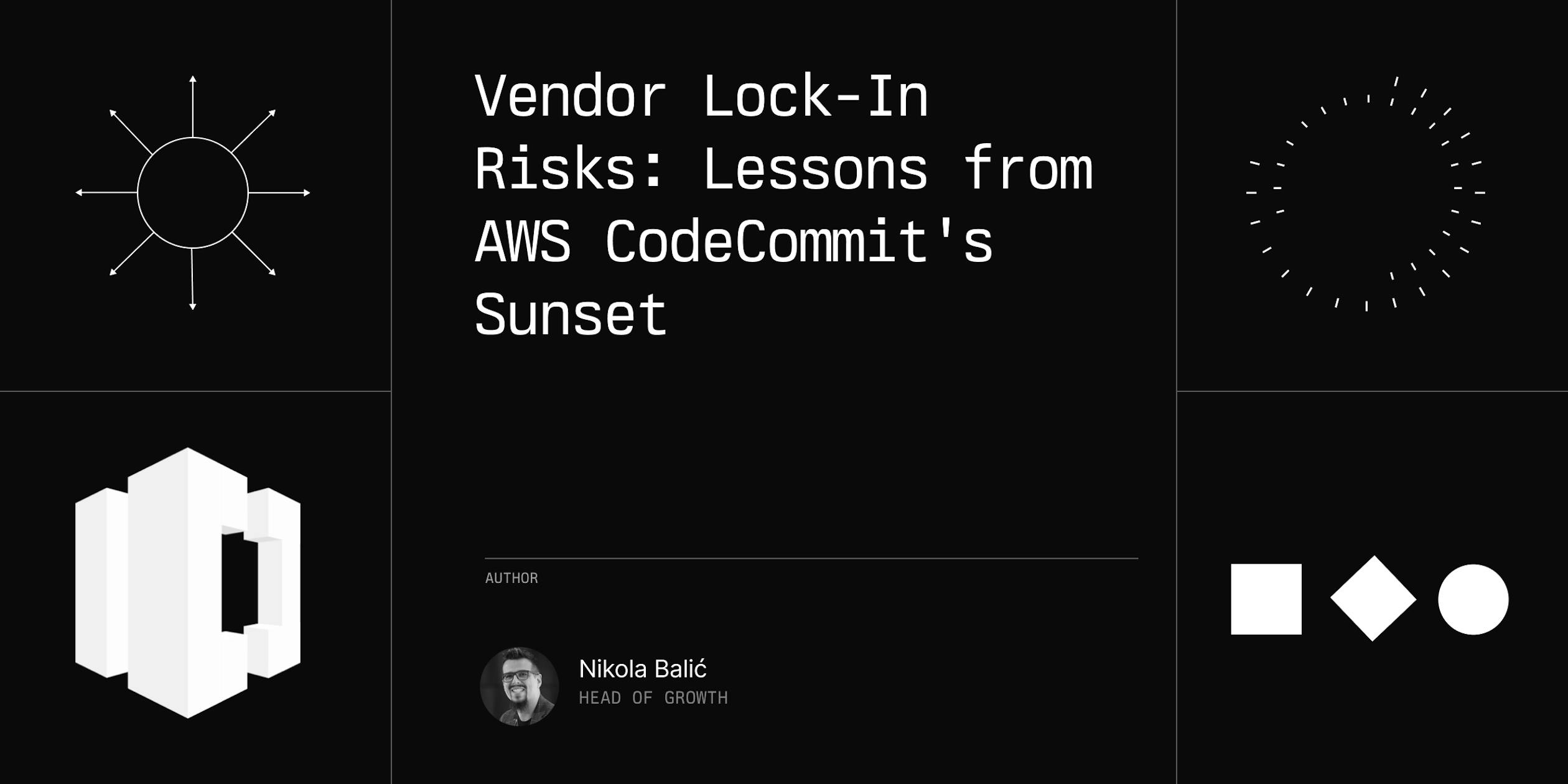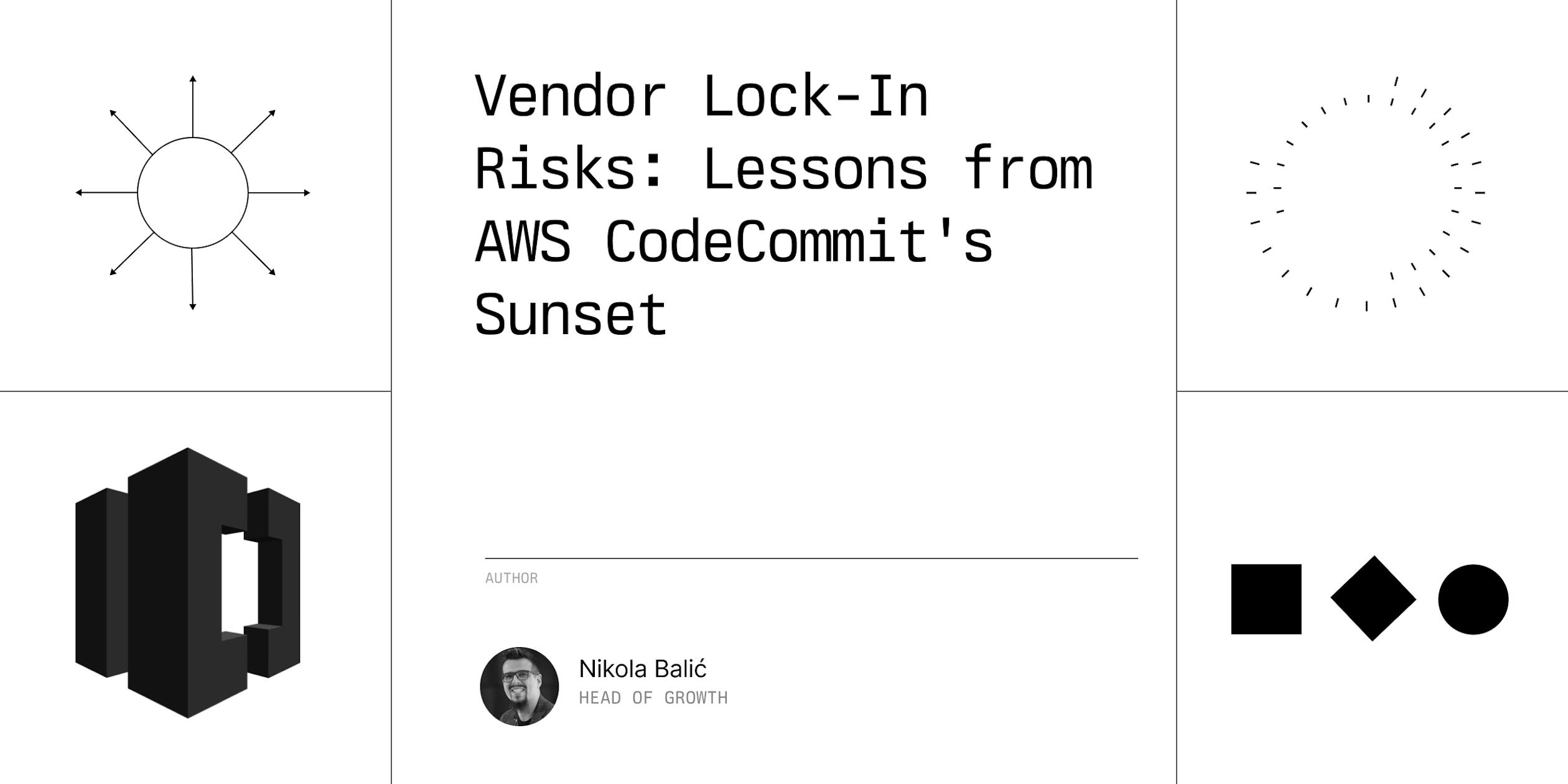The recent news that AWS is discontinuing new sign-ups for its CodeCommit service has sent ripples through the cloud development community.
As reported by Jeff Barr, AWS Chief Evangelist, on Twitter, and further discussed on Reddit, AWS has made the decision to cease onboarding new customers to CodeCommit and several other services.

This move highlights not only the risks of vendor lock-in but also the importance of focusing on core competencies in the tech industry.
At Daytona, we've long advocated for an open, flexible approach to cloud development that avoids lock-in and prioritizes expertise. The CodeCommit situation, first brought to light in an AWS forum post and commented on by Simon Willison, reinforces why this philosophy is critical for organizations building on the cloud.
What's weird about this is that, as far as I can tell, this is the first official public acknowledgment from AWS that CodeCommit is no longer accepting customers.
Simon Willison
Vendor lock-in occurs when a company becomes overly reliant on a single provider's proprietary services. However, the CodeCommit deprecation illustrates a broader issue: even large tech companies may struggle to maintain excellence across a wide range of services outside their core competencies.
Key lessons from the AWS situation
The CodeCommit deprecation illustrates several key downsides of lock-in:
Size doesn't guarantee longevity: Just because a company is large doesn't mean all its services will persist. Google's history of killing products, as seen recently with several of its services, is a prime example.
Core competency matters: AWS excels in infrastructure services, but struggled to compete effectively in the version control space against specialized providers like GitHub and GitLab.
Security concerns: Relying on a non-core service from a large provider doesn't necessarily guarantee better security or reliability. In fact, these services may receive less attention and investment over time.
Innovation lag: Services outside a company's core focus may not keep pace with specialized competitors, leaving users with subpar tools.
As Forrest Brazeal points out in his newsletter, this move signals a shift in AWS's strategy, potentially moving away from being the "Everything Cloud" to focusing on core infrastructure services where they truly excel.
The ripple effects of AWS's decision extend beyond just their direct customers, impacting the broader developer ecosystem in unexpected ways.
Interestingly, for us, this decision comes at a time when there was growing interest in CodeCommit integration among our community. Just weeks before the announcement, the Daytona project had an open issue for implementing CodeCommit integration, which multiple developers were eager to tackle. This timing highlights how quickly the cloud landscape can shift, leaving even the most well-intentioned development efforts potentially obsolete before completion. It serves as a reminder that when building on cloud services, teams must stay agile and be prepared to pivot quickly as provider offerings evolve.
Strategies for Dev Teams and Orgs to Safeguard Themselves
So, how can development teams and organizations protect themselves? At Daytona, we believe the answer lies in a nuanced approach:
Favor open-source over proprietary: Whenever possible, opt for open-source tools and technologies that can run anywhere, rather than cloud-specific services..
Abstract away cloud dependencies: Use infrastructure-as-code and other abstraction layers to isolate application logic from underlying cloud services.
Assess long-term viability: Consider a service's strategic importance to its provider when making adoption decisions.
Plan for portability: Design systems with the assumption that you may need to switch providers in the future.
Regular reevaluation: Periodically review your tech stack to ensure each component still meets your needs and is receiving adequate support and updates.
This is why Daytona has designed our development environment platform to be cloud-agnostic and support all major providers. We focus on our core competency - providing excellent development environments - rather than trying to be everything to everyone.
The CodeCommit situation serves as a wake-up call for the industry. It reminds us that even tech giants can struggle to maintain excellence across a broad portfolio of services. As cloud providers continue to evolve their offerings, it's more important than ever for organizations to make strategic choices about their technology stack.
By focusing on providers' core competencies and embracing open, flexible approaches, development teams can future-proof their work and avoid the pitfalls of vendor lock-in. The cloud should be a powerful enabler of innovation, leveraging the best tools for each job, regardless of their source. With the right strategy, it's possible to harness the benefits of cloud services while maintaining the freedom to adapt and evolve as needs change.







